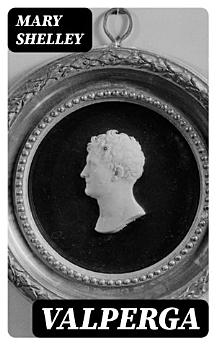Valperga
Nov 2022 · DigiCat
Ebook
404
Pages
family_home
Eligible
info
reportRatings and reviews aren’t verified Learn More
About this ebook
In 'Valperga,' Mary Shelley weaves an intricate tapestry of historical fiction, psychology, and romanticism, set against the backdrop of 14th-century Italy. The narrative follows the tragic tale of Castruccio Castracani, a powerful yet flawed ruler, and the spirited Euthanasia, who struggles against the constraints of her time. Shelley's prose is characterized by gothic elements and a depth of emotional resonance, reflecting her concerns with power, ambition, and the complexities of human nature. The novel's exploration of social and political themes, coupled with its vivid characterizations, positions it within the broader context of Romantic literature, echoing the era's fascination with individuality and the sublime. Mary Shelley, best known for her seminal work 'Frankenstein,' was profoundly influenced by her experiences of loss, love, and the intricacies of human relationships. Her writings often delve into the darker aspects of human existence and the consequences of unchecked ambition. 'Valperga' emerged in a period of personal turmoil for Shelley, which may have fueled her exploration of the interplay between individual agency and societal pressure. Readers seeking a narrative rich in historical context and psychological depth will find 'Valperga' both compelling and thought-provoking. Shelley's ability to intertwine complex characters with the political landscape invites readers to reflect on the historical and emotional dimensions of power and resistance, making it an essential read for those interested in the intersections of history, literature, and the human condition.
About the author
Mary Shelley, born Mary Wollstonecraft Godwin on August 30, 1797, emerged as one of the preeminent voices of English Romantic literature, distinguished primarily by her iconic novel, 'Frankenstein; or, The Modern Prometheus' (1818). The daughter of political philosopher William Godwin and feminist Mary Wollstonecraft, Shelley's literary pedigree was substantial. She further consolidated her status in the literary world by her marriage to poet Percy Bysshe Shelley in 1816. Shelley's authorial ambit expanded beyond 'Frankenstein' with works that include the historical novel 'Valperga; or, The Life and Adventures of Castruccio, Prince of Lucca' (1823). With a narrative intertwining the personal journey of its titular character with a rich historical backdrop, 'Valperga' showcases Shelley's adeptness at weaving fiction with historical reality, echoing the broader Romantic fascination with historical and cultural authenticity. Noted for its intricate character development and political commentary, 'Valperga' illustrates Shelley's commitment to exploring themes of power, individualism, and societal constraint. Beyond her novels, Shelley's body of work spans short stories, essays, and travelogues, reflecting keen intellect and Gothic sensibilities. A woman ahead of her time, her literary style has been appraised for its trailblazing exploration of identity, consciousness, and social critique. Mary Shelley's contributions to literature persisted until her death on February 1, 1851, leaving an indelible impression on the spheres of speculative fiction and women's writing.
Rate this ebook
Tell us what you think.
Reading information
Smartphones and tablets
Install the Google Play Books app for Android and iPad/iPhone. It syncs automatically with your account and allows you to read online or offline wherever you are.
Laptops and computers
You can listen to audiobooks purchased on Google Play using your computer's web browser.
eReaders and other devices
To read on e-ink devices like Kobo eReaders, you'll need to download a file and transfer it to your device. Follow the detailed Help Center instructions to transfer the files to supported eReaders.








